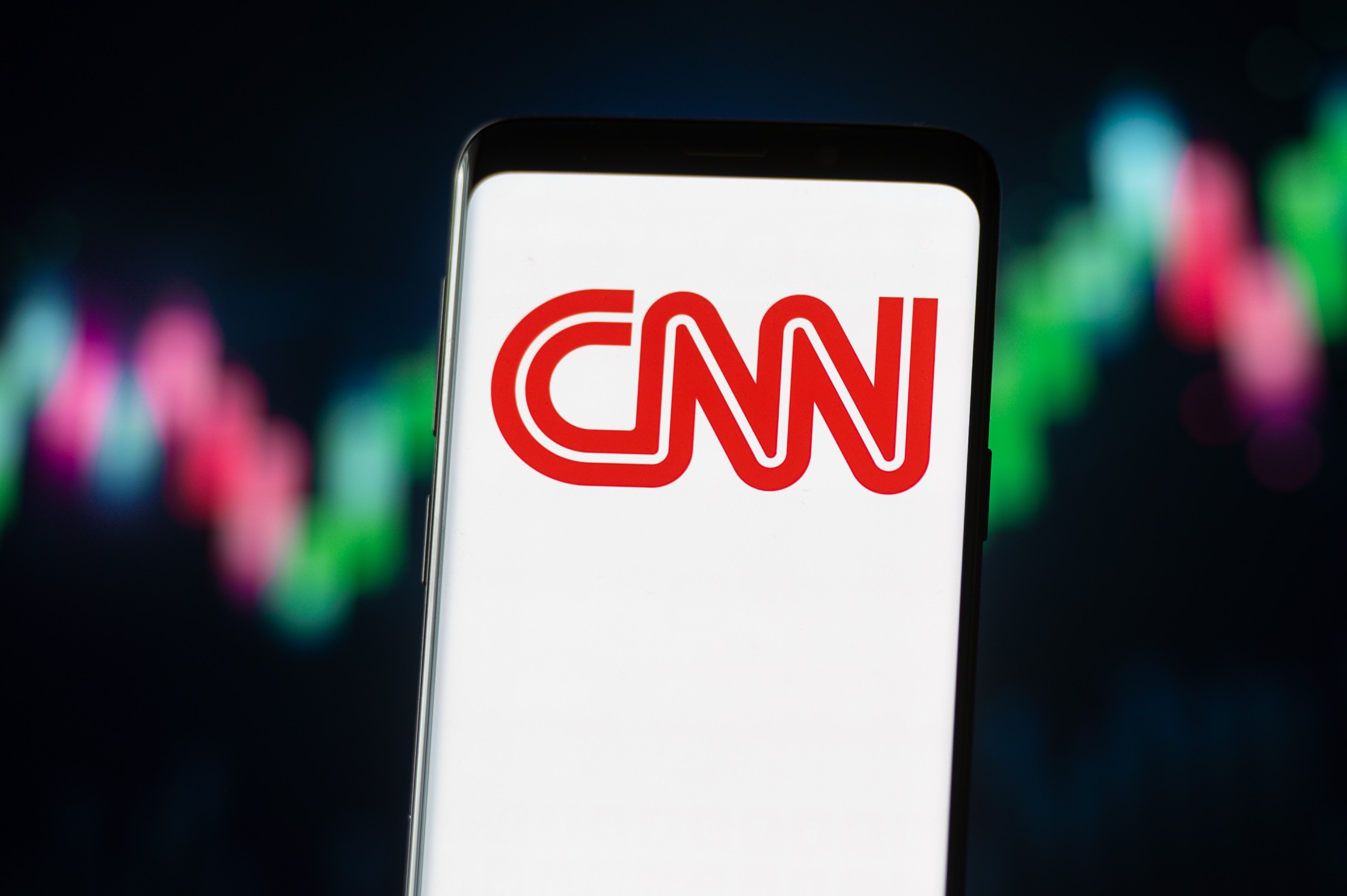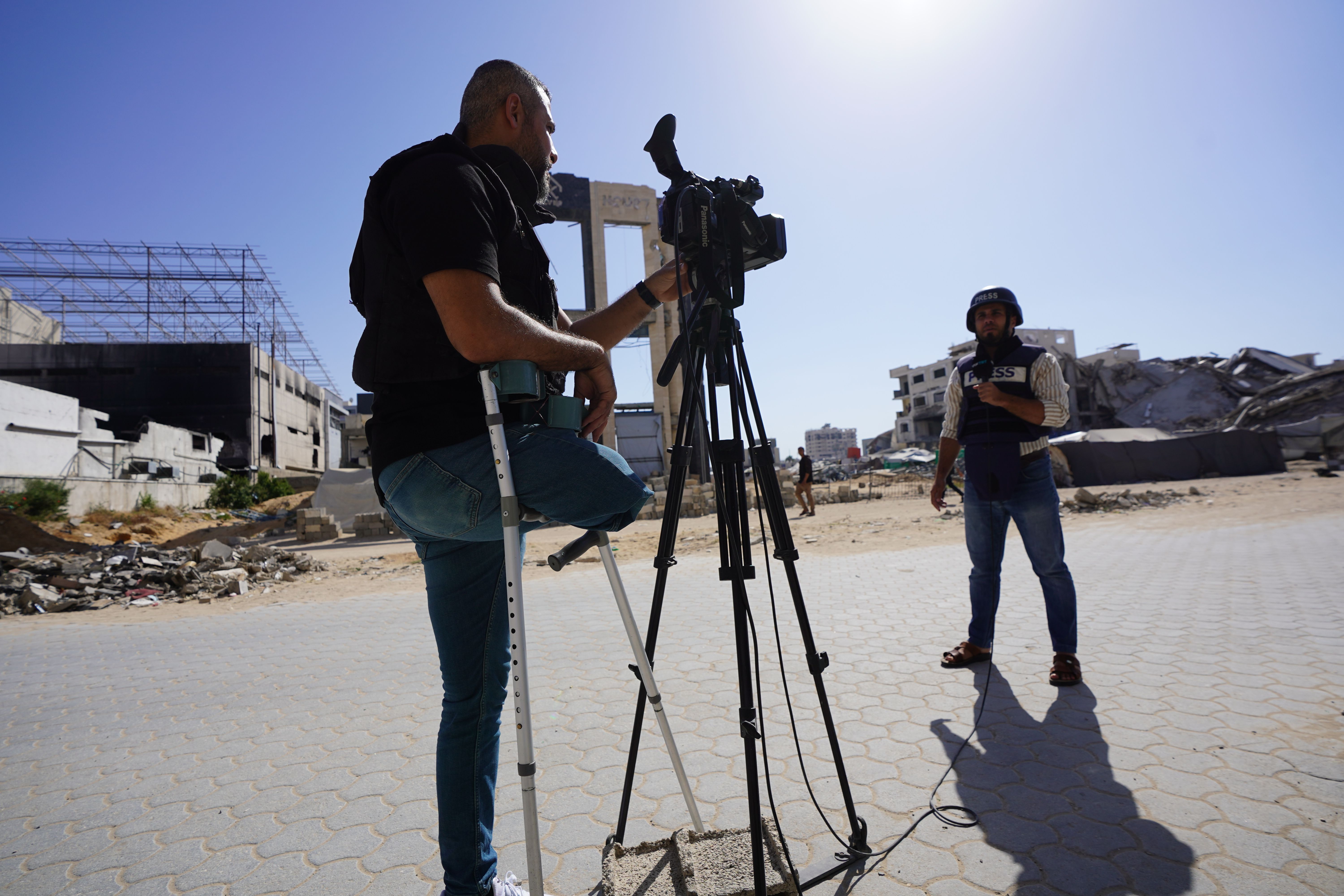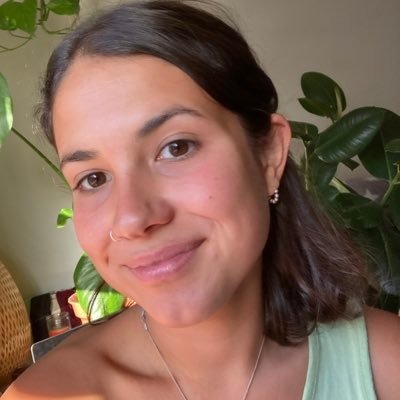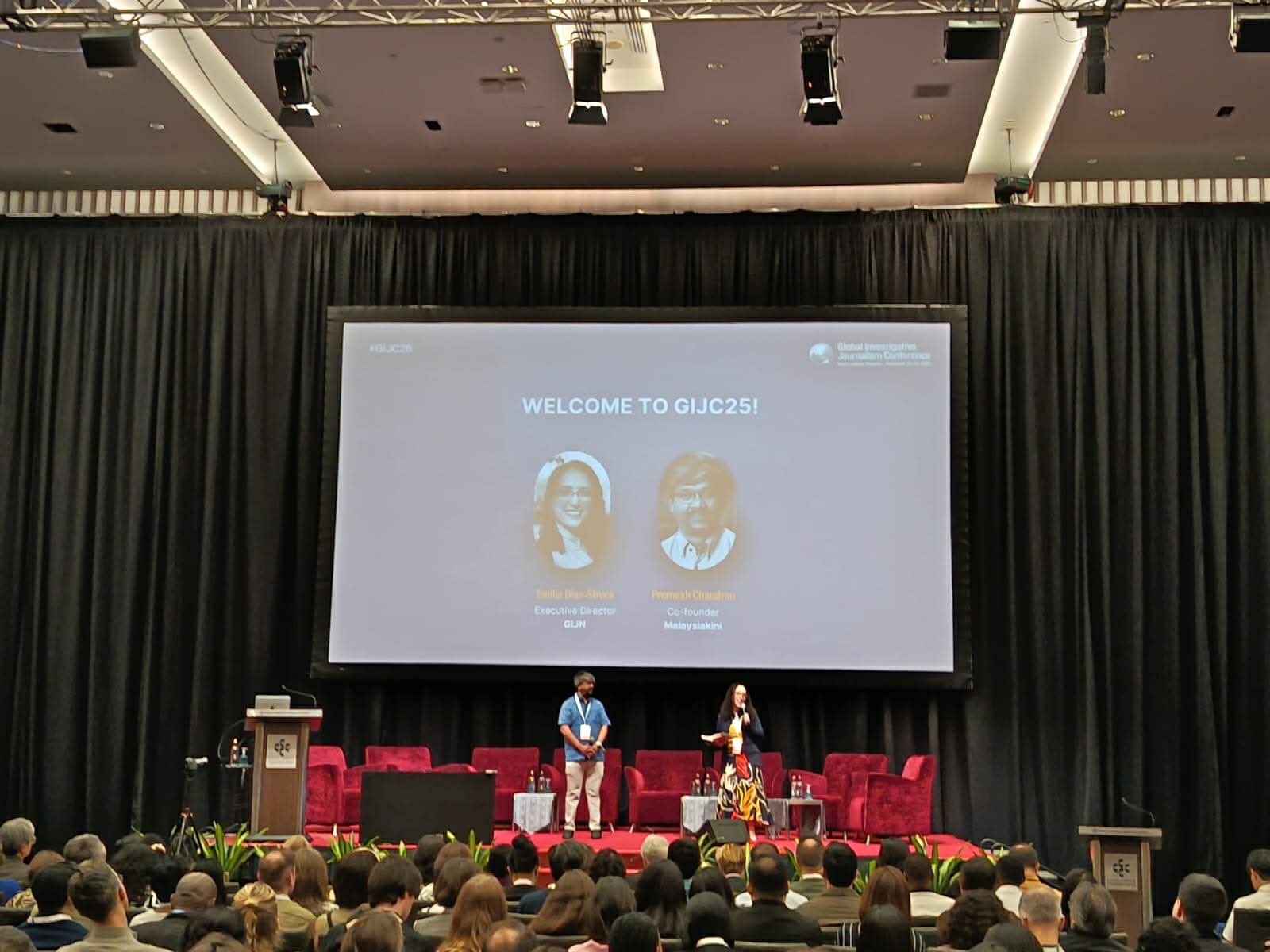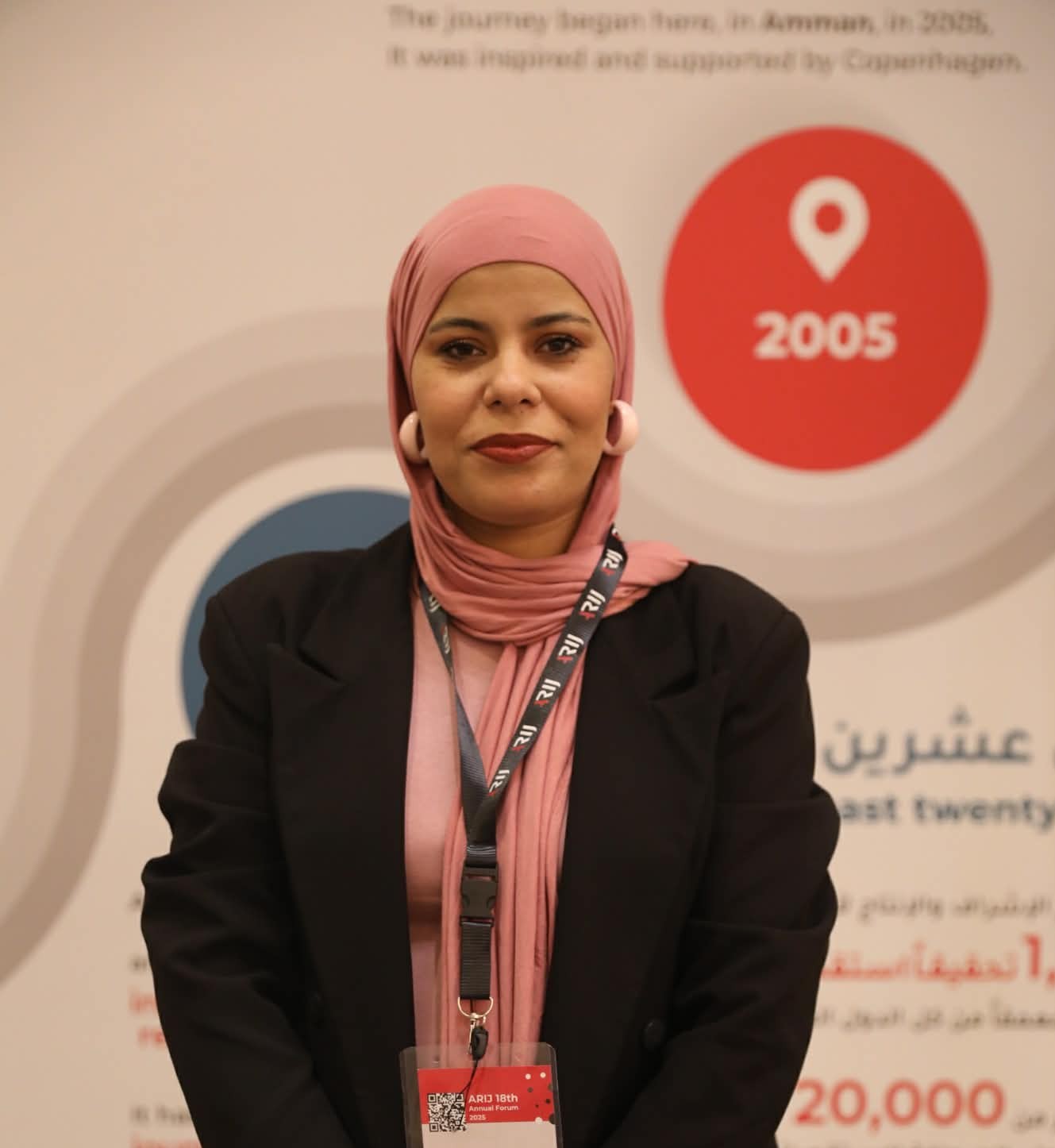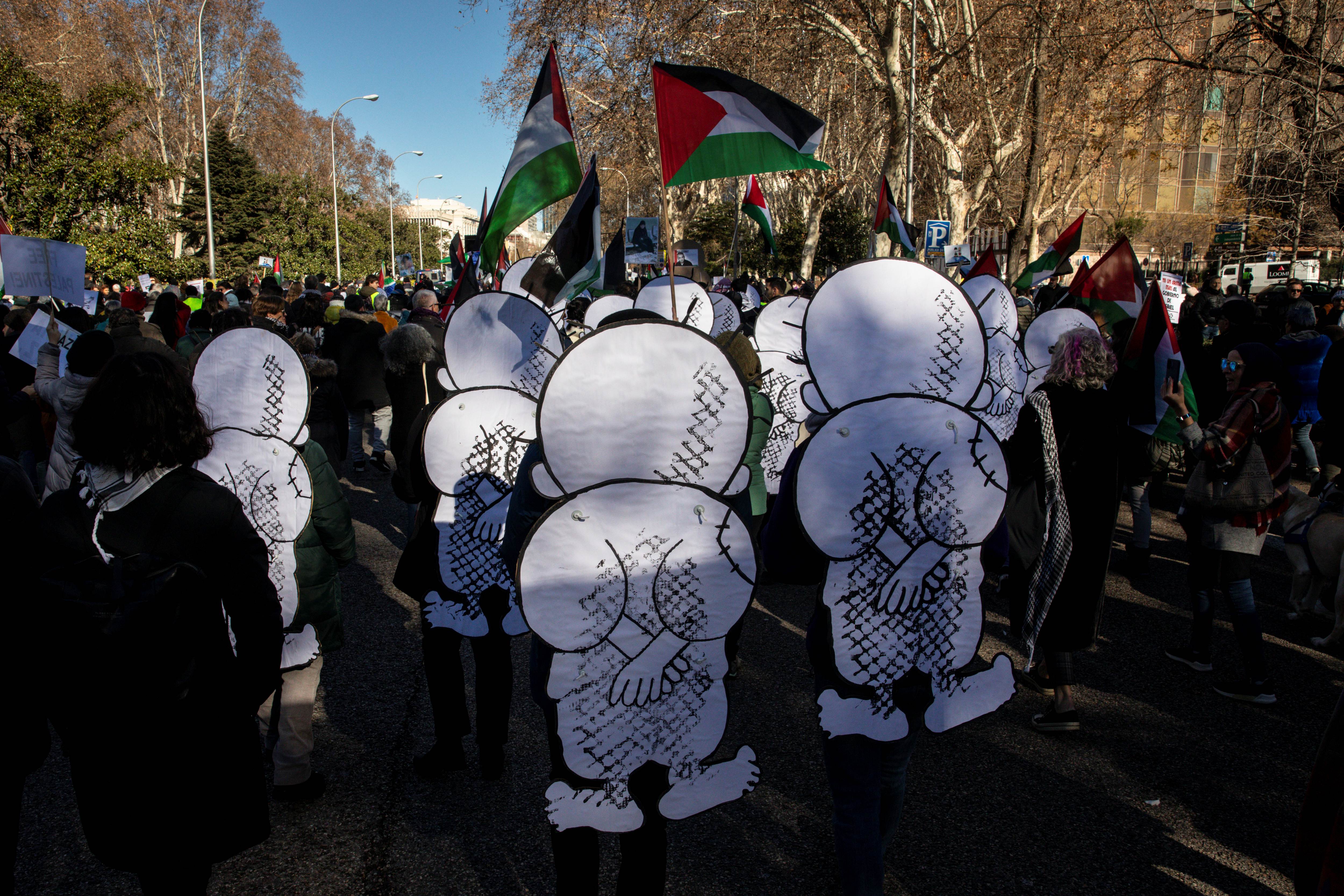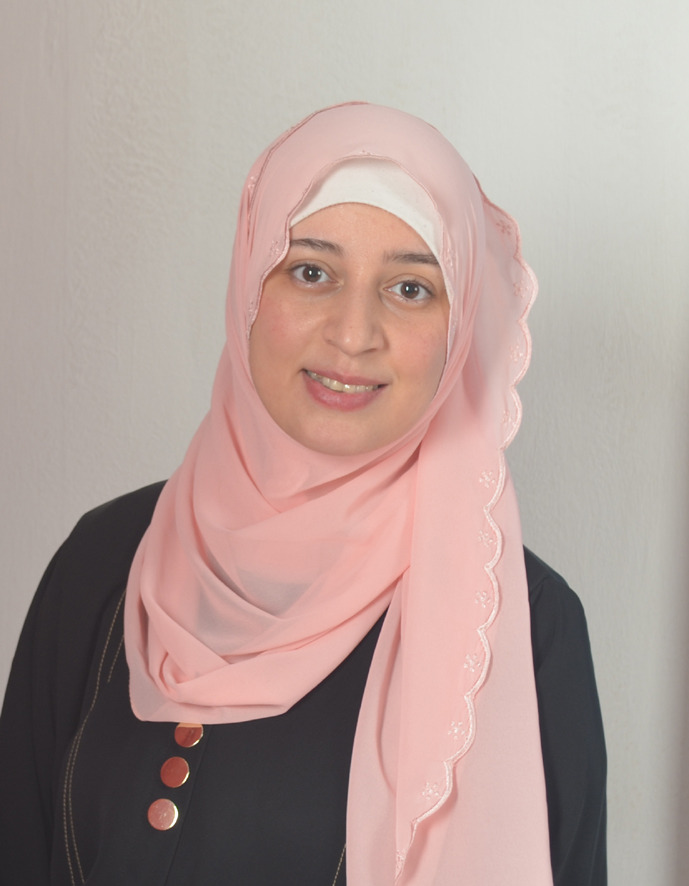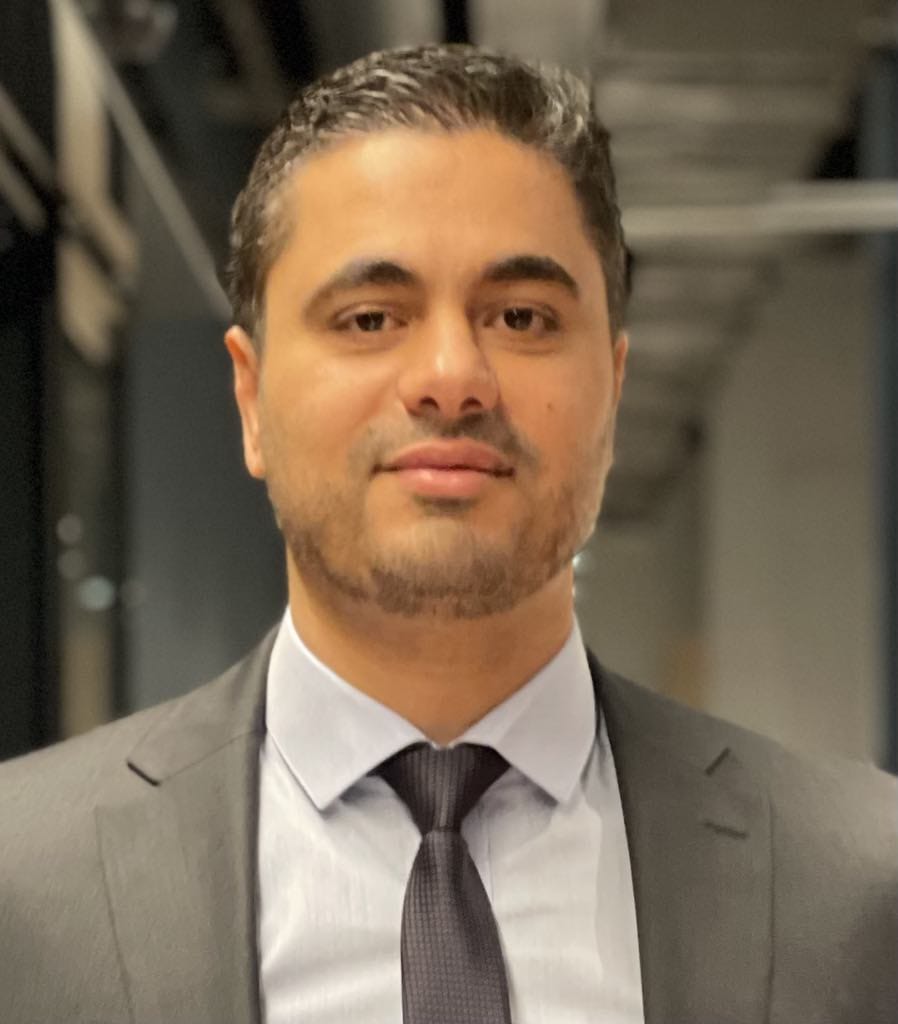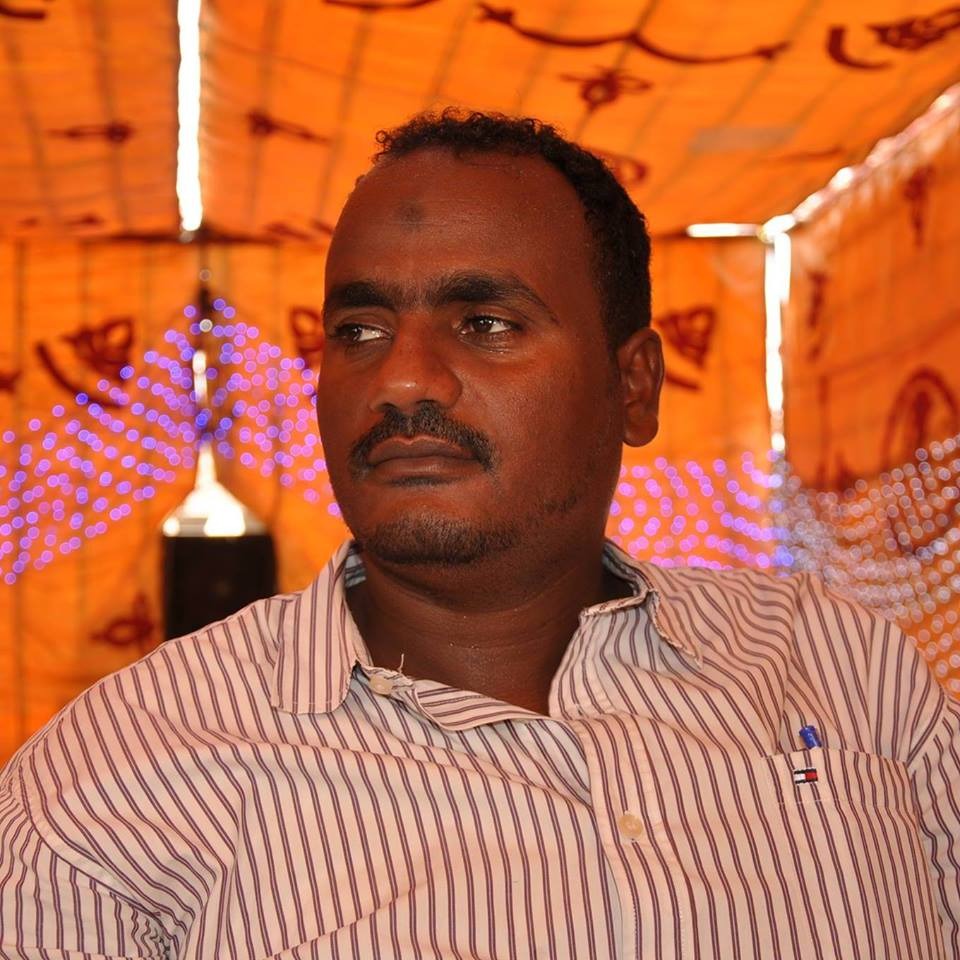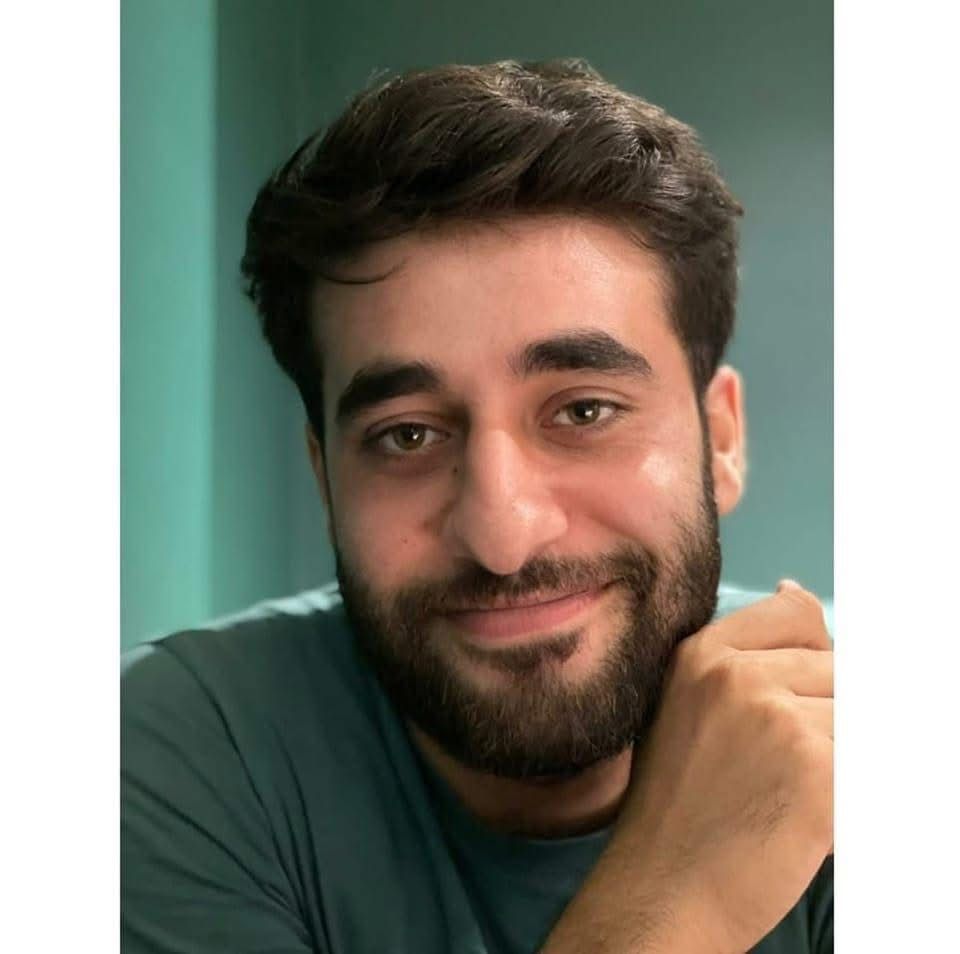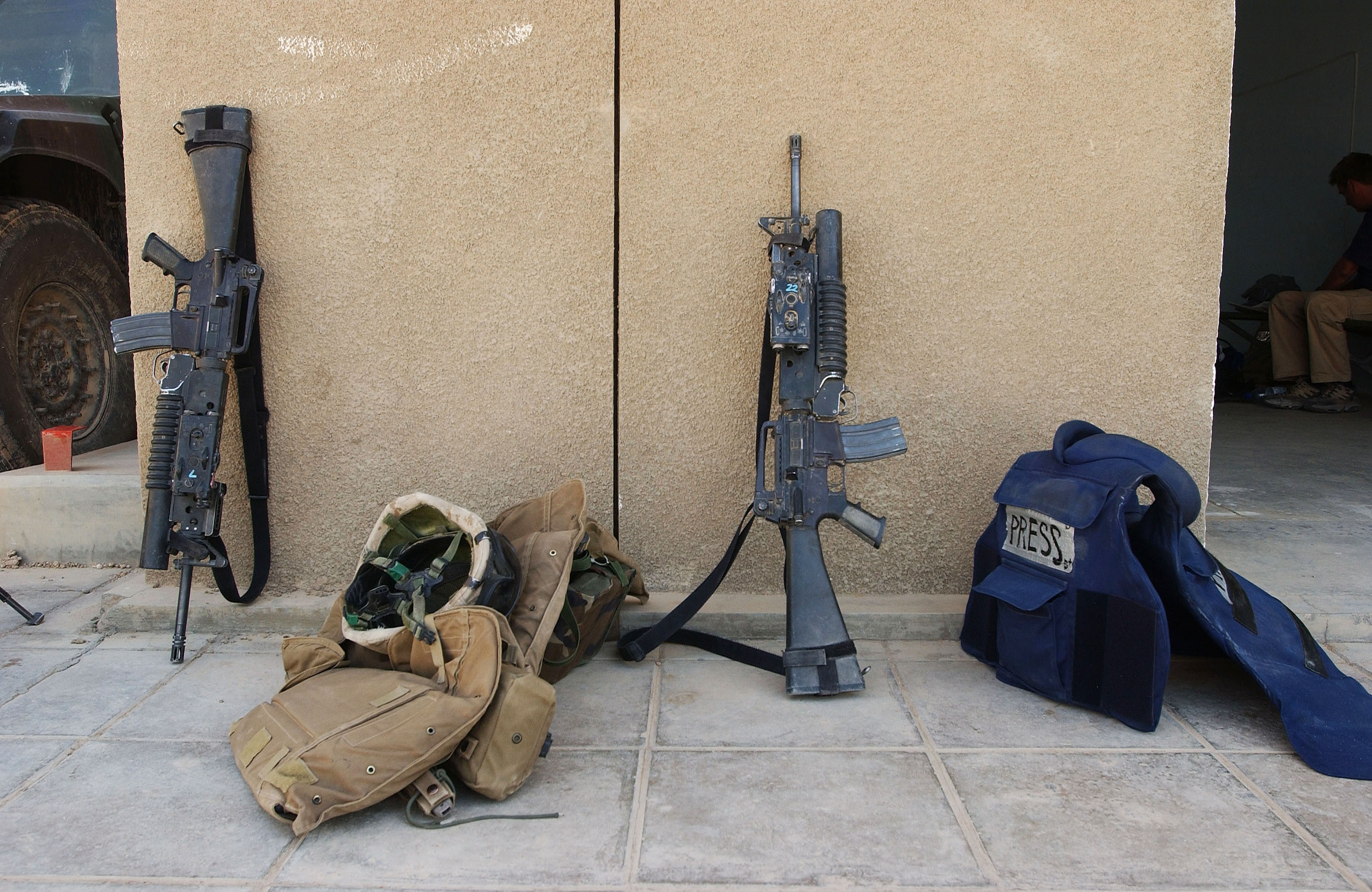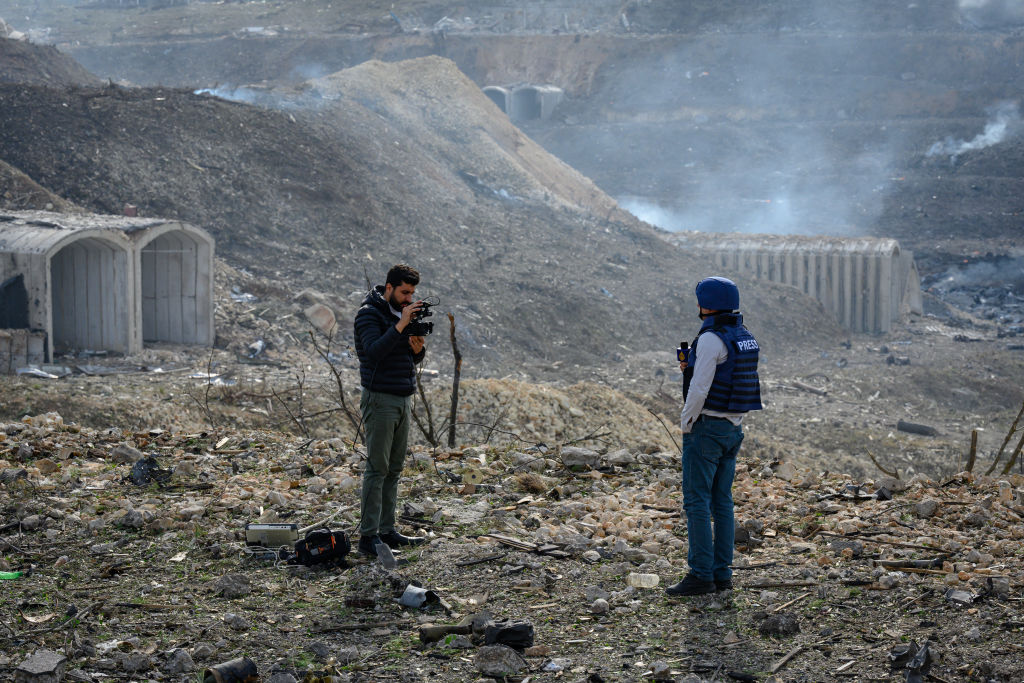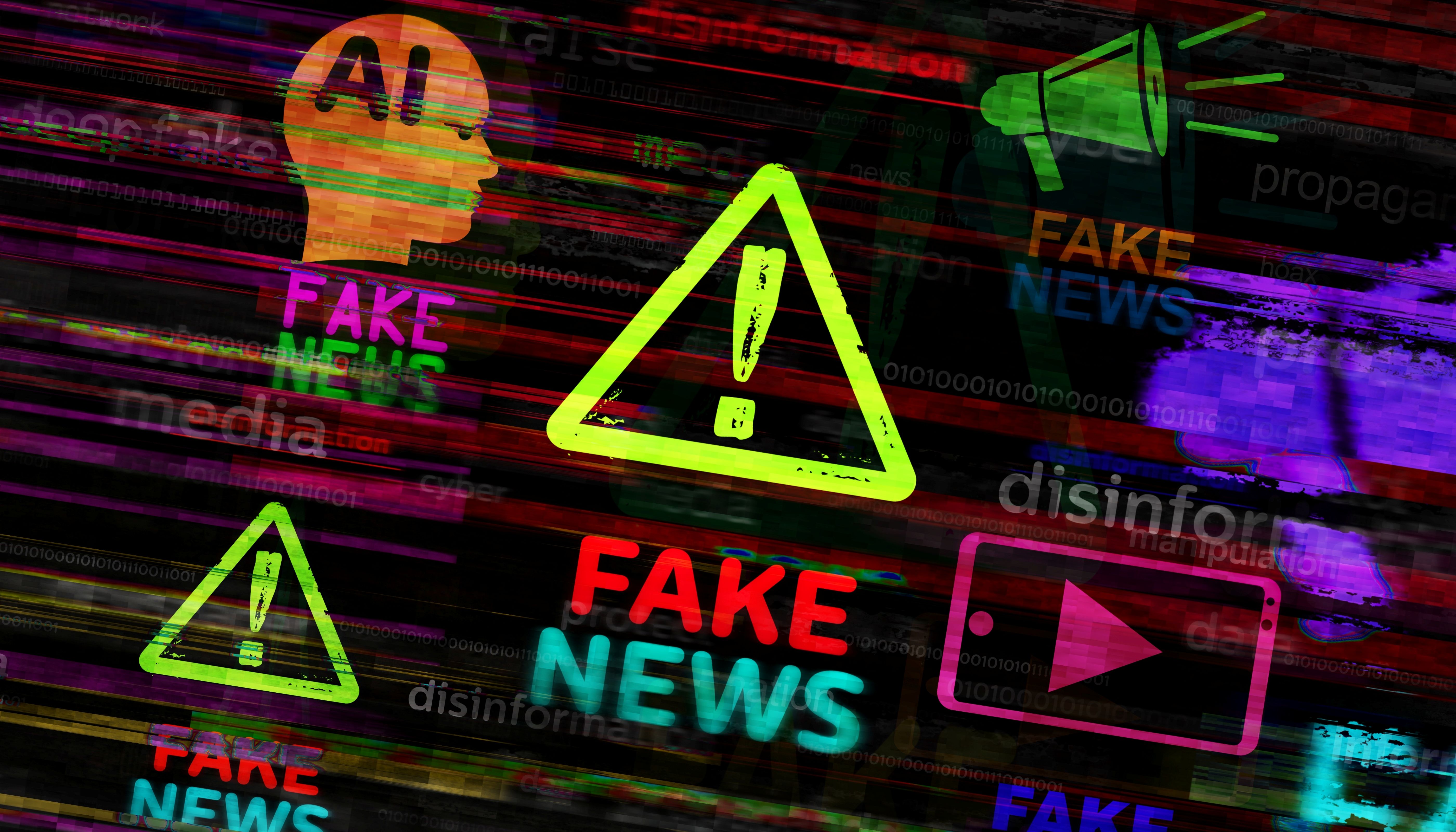The "CNN effect" suggests that intense media coverage of humanitarian crises can sway public opinion and pressure governments into foreign policy action. It highlights how media influences political agendas while also raising concerns about journalistic independence and manipulation by political elites.
The independence and objectivity of news media are essential to accurately informing the public. However, the way the media decides to report the news—by deciding which news items are “relevant” to its audience (gatekeeping), as well as how to order these items and how long to spend covering them (agenda-setting)—can raise questions about its objectivity and independence.
These processes imply that media content is disseminated to the public only after filtering and censorship by media companies. For example, as part of their daily decision-making about what makes it on the news docket, an editor will decide what kind of content is legitimate to disseminate to a media outlet’s audience. These content-level decisions reflect the policy and news agenda of that media organisation, as well as creates doubts about the extent to which media is independent.
The aim of this article is to explore the relationship between news media and adjacent actors, namely, the public and policymakers. In particular, the article will investigate the extent to which media influences western foreign policy agendas through its coverage of humanitarian issues, and asks the question: By making the public aware of certain humanitarian disasters, can news media drive foreign policy? To answer this question, we look to the CNN effect.
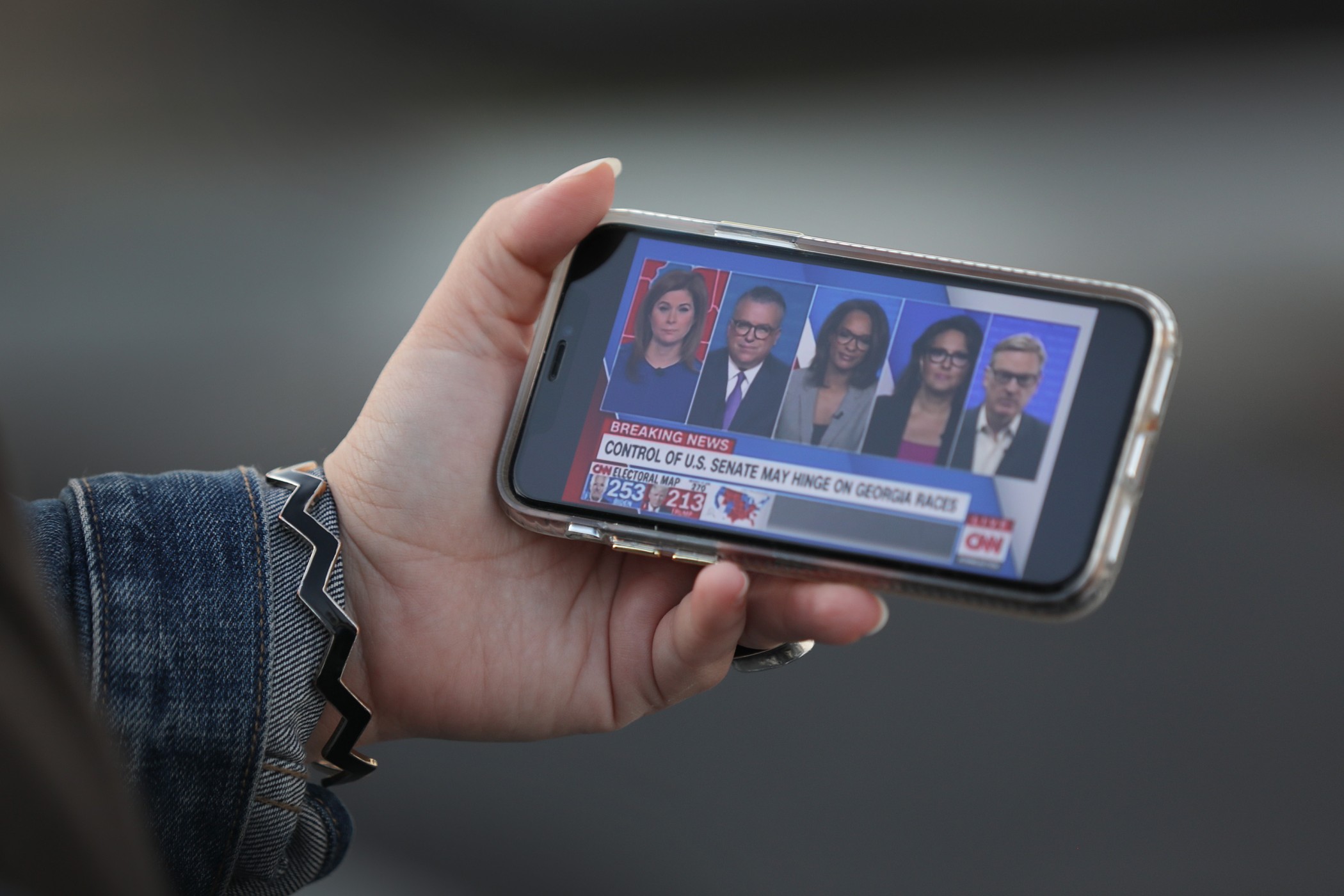
The CNN effect is the theory that continuous coverage of major events on TV networks, such as CNN, can influence domestic and foreign policy agendas. The CNN effect works through the moulding of public perception, which, in turn affect policymakers’ agendas. The CNN effect, then, can be defined as the independent news media promoting discussion and raising awareness amongst the public with the aim of creating a specific policy response to the events being covered. The concept originated in the 1990s, when CNN covered the American military intervention in Iraq (1991), Somalia (1992), and Bosnia (1995) in real time. These interventions were widely seen as policymakers’ responses to media coverage of humanitarian suffering,[1] like those scenes of refugees fleeing from Saddam Hussein’s forces in Kuwait in the First Gulf War. By playing the dramatic images over the air non-stop, the media provoked public opinion, which in turn provoked policymakers to lead a military intervention.
The main implication of the CNN effect is its influence on western foreign policy, evidenced by the extent to which the media—here embodying the ideal of the fourth estate—has been able to intervene in policymakers’ agendas. In this way, media coverage of human suffering and ensuing popular outrage have forced policymakers to put certain issues on their foreign policy agenda that otherwise they would not have considered.[2] While proponents of these interventions may have been generally pleased by western involvement, some have argued that these policies might have been based on shaky foundations as they were driven by media pressure rather than policymaking logic.
The CNN effect is assumed to have two characteristics: (i) The news media is independent and has the power to set its own agenda, and (ii) it can provoke responses from policymakers.
The first characteristic implies that news media is independent in its coverage, largely a function of the humanitarian imperative press members feel upon seeing intense suffering while covering stories. In general, bearing witness to suffering causes the media to become more proactive, set their own agenda, and behave as event-driven organizations. For example, mass shooting events such as the 1999 Columbine High School shooting left audiences stunned and confused. This gave news media the opportunity to define the narrative and draw policymakers’ attention to the subject in a way that was consistent with its own view of the causes of this tragedy which it identified as social problems, gun control and violence within existing culture.[3]
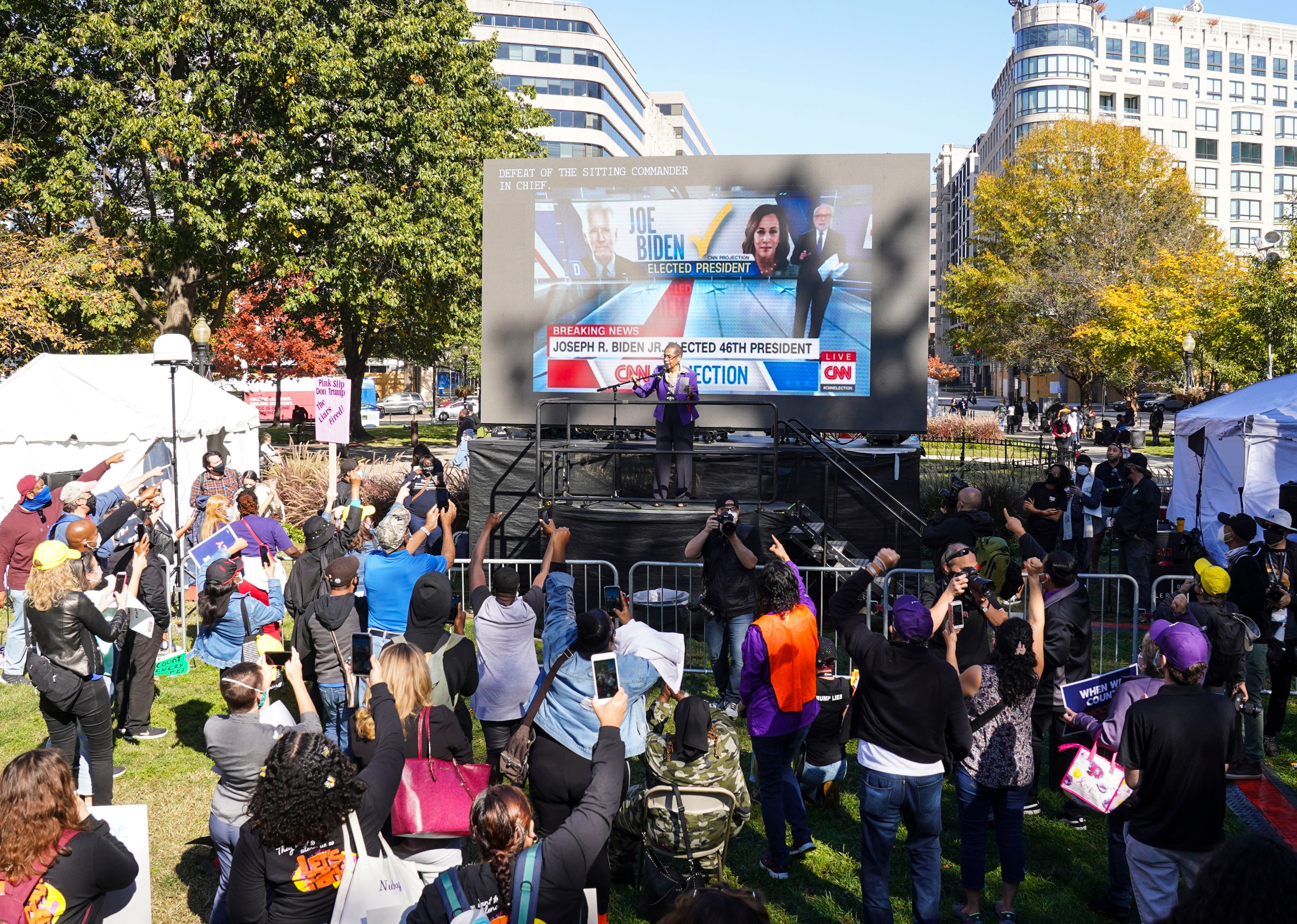
Although the main characteristic of the CNN effect is the specific humanitarian context of its coverage, there are other contributing factors to the phenomenon. Technological advances in media and news broadcasting through the internet, social media and smart phones have made sending and receiving live and non-stop news updates possible from any point in the world.[4] Smart phones and online media platforms allow news reporters to be more mobile in their reporting and have made conflict zones more accessible.
In addition, the end of the Cold War has allowed the CNN effect to become a more prominent driver of foreign policy, as some argue that the US lacked convincing justifications for its foreign policy in the post-Cold War era and thus policymakers were easier to persuade. Others assert that the end of the Cold War gave media outlets more editorial independence.[5]
The political efficacy of the CNN effect has also been challenged on several different levels. At its most basic level, the CNN Effect transforms reporters into policymakers through their agenda-setting decisions and their ability to pressure policymakers into fulfilling their agendas.[6] Some scholars challenge this notion on the basis that military interventions are not motivated by humanitarian concerns.[7] Instead—the scholars assert—these military interventions are simply the extension of traditional political powers using humanitarian contexts as a cover to pursue their own political and economic interests. Such criticism of the CNN effect questions whether the media is indeed independent and the nature of the relationship between policymakers and the news media.
An alternative interpretation of this relationship is provided by the concept of “manufacturing consent.” Manufacturing consent emphasises the involvement of governments in setting news agendas, and casts serious doubt on the independence of news media.[8] In a broader sense, the idea of manufacturing consent suggests that governments and political elites (e.g. policymakers) can and do influence the output of news media.
To exercise this influence, elites create a tendency of self-censorship among journalists via various channels of pressure. Over the long term, continued self-censorship results in the formation of a shared perception of news events among reporters, political, and social elites. This conceptualization of the relationship between the news media and policymakers rules out the assumption that the media is independent and suggests that—in contrast to the CNN effect—the news media is not event-driven.
There is, however, no one agreed upon explanation within the theoretical model of manufacturing consent for the relationship between the media and the state. Still, several different explanations have been put forward.
One such explanation is the propaganda model,[9] which suggests that privately-owned mainstream media exercises its power and influence to protect the interests of the social and political elites. This implies that the media selectively feeds the public information in a way that conforms with elite views and beliefs. There are, however, several issues with this model as it does not account for publicly owned news corporations such as in the UK, Germany and Scandinavian countries.[10] In the case of publicly owned media, the government may have financial power through subsidies and is thus entitled to have some say in the news agenda. This can lead to an “executive” version of manufacturing consent,[11]where government officials gain membership on the executive boards of media organizations and exercise influence on news agendas from this position. This contrasts with self-regulating news outlets which tailor their coverage to conform with political, economic, and social elites’ views and beliefs. In these outlets, there is no requirement for the elites to hold any formal social or political position.
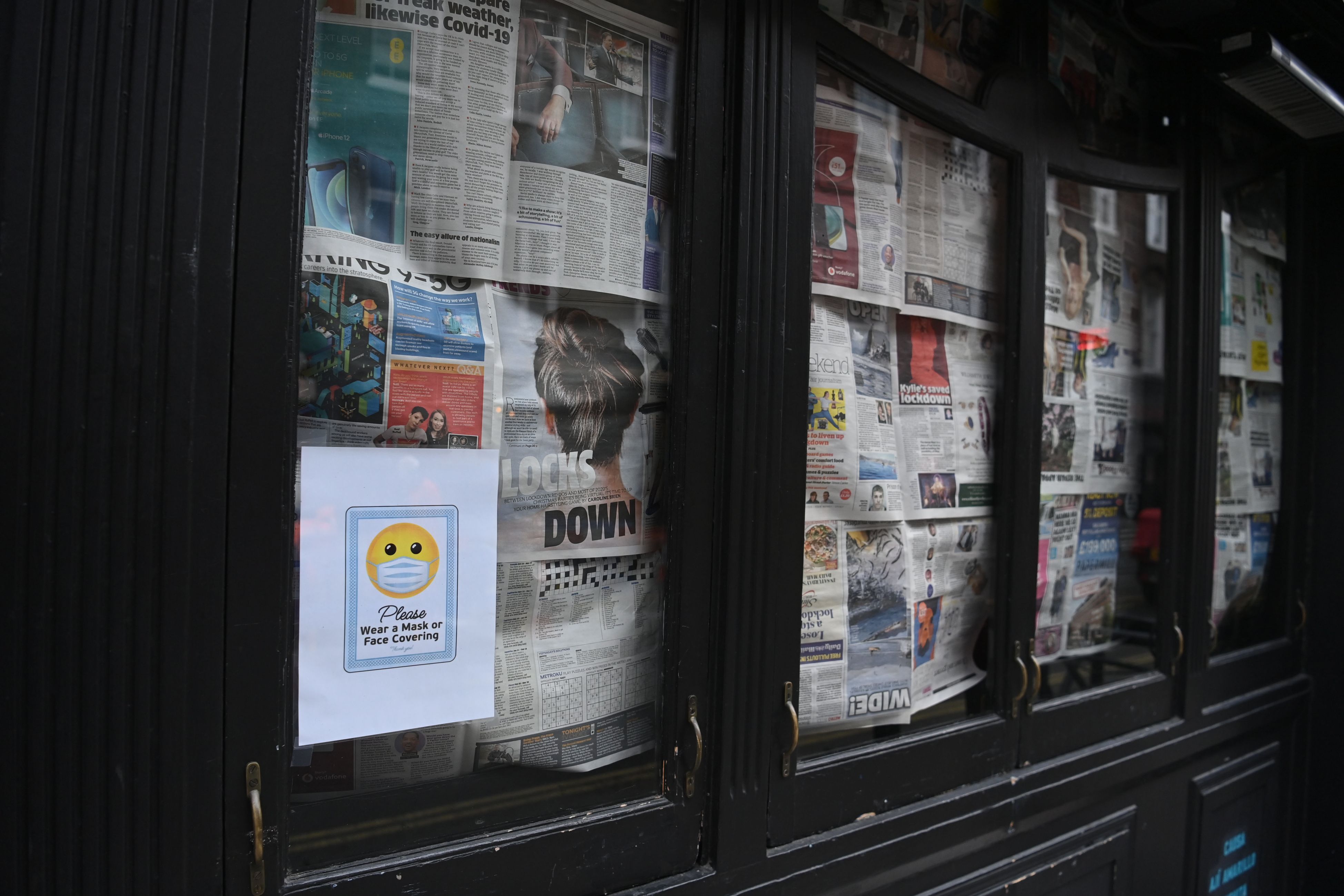
Another conceptualization of the relationship between the media and the state is the “indexing hypothesis,” which states that though initial media coverage of humanitarian events might be truly independent due to the graphic nature of the event, eventually the official editorial line reigns in coverage and “re-indexes” it to conform with the official narrative.
An infamous example of the indexing hypothesis is the coverage of the Abu Ghraib scandal, which was revealed by CBS news in 2004. Initially, media coverage of the scandal was event-driven due to the graphic nature of the leaked photos and documents which the government could not control. However, indexing quickly took place when a number of congresspeople became publicly involved and began to make statements, organise hearings, and published documents opposing torture and condemning the treatment of prisoners at Abu Ghraib. The officials—mostly those in the Bush administration—put forward a frame that was then used to index all narratives and “trump” all the available evidence, helping those responsible for the scandal evade accountability.
In summation, the CNN effect emphasises the role of free and independent media organisations in mobilising public opinion to influence foreign policy. The stated mechanism for media’s influence specifies a causal effect running from the media, via public opinion, to policymakers. In practice, this mechanism is unclear and difficult to trace. It is also possible to find evidence that the causality runs both ways, which suggests the presence of some form of strategic interaction between media organisations and policymakers.
Furthermore, the media still plays a crucial role in informing the public of key issues. However, current technological progress and emergence of social media networks has made news creation more accessible to everyday citizens, giving rise to the phenomena of “citizen journalists.” As a result, now the power of influence does not solely lie within the hands of major news networks such as CNN. While it may be true that the CNN effect remains a salient concept, its influence does not seem to be as strong as it was in the 1990s.
[1] Piers Robinson, “The CNN effect: Can the news media drive foreign policy?,” Review of International Studies, 25 (1999): 301-309;
Piers Robinson, The CNN effect: The myth of news, foreign policy and intervention (London: Routledge, 2002).
[2] George F. Kennan, “Somalia, through a glass darkly,” The New York Times, September 30, 1993.
[3] W. Lance Bennett, Regina G. Lawrence, and Steven Livingston, “None dare call it torture: Indexing and limits of press independence in the Abu Ghraib scandal,” Journal of Communication, 56 (2006): 467-485.
[4] Robinson, The CNN effect: The myth of news;
Steven Livingston, Clarifying the CNN effect: An examination of media effects according to type of military intervention (John F. Kennedy School of Government's Joan Shorenstein Center on the Press, Politics and Public Policy at Harvard University, 1997).
[5] Livingston, Clarifying the CNN effect.
[6] Kennan, Somalia.
[7] Noam Chomsky, The New Military Humanism: Lessons from Kosovo (Monroe ME: Common Courage Press, 1999);
Phillip Hammond, and Edward Herman, Degraded Capability: The Media and the
Kosovo Crisis (London: Pluto Press, 2000).
[8] Piers Robinson, The CNN effect: The myth of news, foreign policy and intervention (London: Routledge, 2002).
[9] Edward S. Herman and Noam Chomsky, Manufacturing consent: The political economy of mass media (New York: Pantheon Books, 1988).
[10] Collin Sparks, “Extending and refining the propaganda model,” Westminster Papers in Communication and Culture, 4 (2007): 68-84.
[11] Robinson, The CNN effect: The myth of news.
